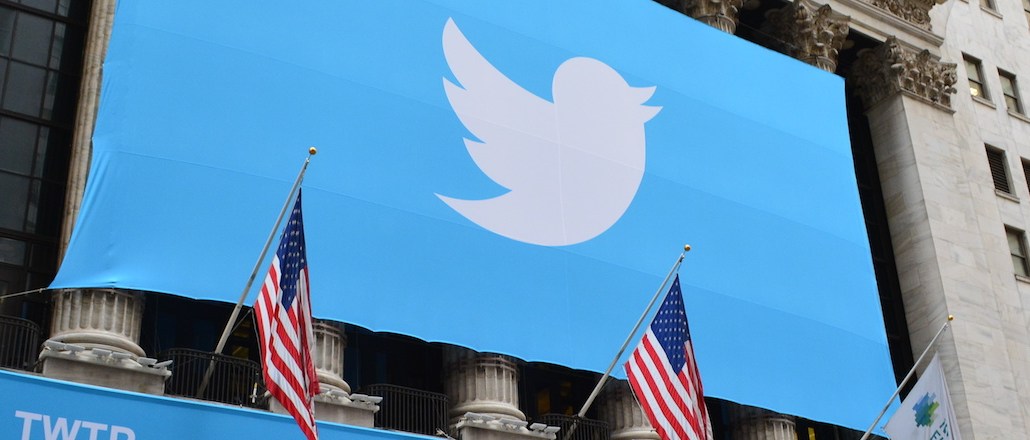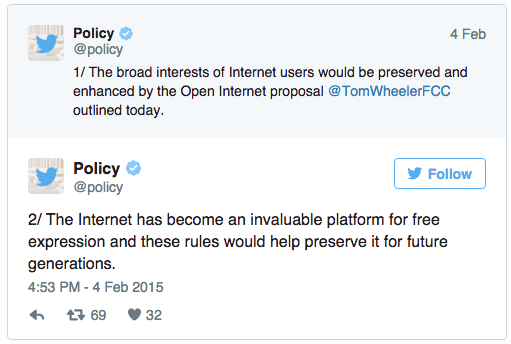Secure your place at the Digiday Media Buying Summit in Nashville, March 2-4

With the 2016 presidential race underway in earnest (and sometimes not-so-earnest), it seems everyone has a political action committee, or PAC. Add to that list Twitter.
In a blog post that updated corporate political policies yesterday, the social media company announced that its revamped PAC, originally launched in 2013, is set to make its first-ever federal campaign contributions — which the platform will disclose with tweet-like speed within two days. (Federal law lets PACs wait weeks or months to reveal which candidates they’ve given to.)
“We will conduct our #PAC activities with a high degree of transparency,” Tom Tarantino, Twitter’s public policy manager wrote. “In addition to posting our policies, and FEC reports, we are also committing to post notice of all donations to candidates within 48 hours.”
In an interview with the Center for Public Integrity,Colin Crowell, Twitter’s head of global public policy and a former FCC staffer, said that Twitter’s PAC intends to donate to federal campaigns this election cycle in addition to its lobbying on issues relating to government surveillance reform, digital privacy protection and net neutrality. The platform will disclose its trade association memberships and membership costs, too, as well as any financial associations it has with nonprofit groups like “Rock the Vote.”
“We advocate for our users and customers on issues of freedom of expression, privacy, online safety, net neutrality, and patent reform,” Twitter announced on its new public policy vertical. Last year, Twitter spent $310,000 on lobbying. It has spent $330,000 so far this year, according to the Center for Responsive Politics. It provides a loose breakdown of where that money goes on its new political engagement and transparency page.

The move comes as co-founder Jack Dorsey has returned as permanent CEO to combat flagging user growth and investor concerns.
But Twitter’s involvement in the election doesn’t stop with campaign funding or lobbying — it extends to teaming up with CBS to co-host a Democratic presidential debate on Nov. 14.
More in Media

Media Briefing: Turning scraped content into paid assets — Amazon and Microsoft build AI marketplaces
Amazon plans an AI content marketplace to join Microsoft’s efforts and pay publishers — but it relies on AI com stop scraping for free.

Overheard at the Digiday AI Marketing Strategies event
Marketers, brands, and tech companies chat in-person at Digiday’s AI Marketing Strategies event about internal friction, how best to use AI tools, and more.

Digiday+ Research: Dow Jones, Business Insider and other publishers on AI-driven search
This report explores how publishers are navigating search as AI reshapes how people access information and how publishers monetize content.





